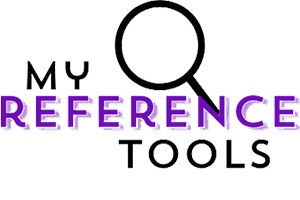Should Higher Education Be a Public Good?

For decades, the role and value of higher education have sparked powerful debates. At the heart of today’s discussions is one pressing question that affects students, families, workplaces, and society as a whole: Should higher education be considered a public good?
This question isn’t merely philosophical. It directly impacts real-world decisions about policy, educational access, and resource allocation. To understand the stakes, we must explore what it means for something to be a public good, why higher education matters on a broader societal level, and what happens when access to it is limited or prioritized for certain groups.
Understanding Public Good
A public good is a resource or service that benefits everyone and is available to all. Classic examples include clean air, national defense, public parks, and safe roads. For something to qualify as a public good, it typically has two defining traits:
- Non-excludable: People can’t be easily prevented from using or benefiting from it.
- Non-rivalrous: One person’s use or benefit doesn’t diminish another’s access to it.
Based on this definition, opinions diverge on whether higher education fits the mold. On one hand, it seems partially excludable because not everyone is admitted to college, nor can everyone afford the high costs of tuition. On the other hand, the benefits of higher education extend far beyond individual students. An educated populace contributes to the wider public good by creating healthier communities, stronger economies, and innovative solutions to global challenges.
This duality has fueled debates about whether higher education should be treated as a personal investment, paid for by individuals, or as a societal good that merits public funding. To answer this, it’s important to understand the many ways higher education impacts not just individual graduates, but society at large.
Why Higher Education Matters
The benefits of higher education are vast, reaching far beyond the immediate advantages of a degree holder landing a good job or earning a higher paycheck. From stronger economies to healthier, more civically engaged communities, here are some key ways higher education matters on a broader scale:
1. Workforce Readiness and Economic Growth
A college education equips individuals with the skills and knowledge needed for today’s complex and evolving labor market. This does more than just help graduates find better jobs; it strengthens the entire economy. For instance, communities with a higher percentage of college-educated citizens tend to attract industries that pay higher wages and require highly skilled workers, such as tech, healthcare, and engineering.
Take Silicon Valley as a case study. The region’s success is deeply tied to its proximity to top research universities like Stanford and UC Berkeley. These institutions not only produce skilled graduates who drive innovation but also foster a culture of entrepreneurship that benefits the entire region.
2. Healthier Citizens and Communities
Data consistently shows that people with college degrees are more likely to enjoy better health outcomes. They tend to smoke less, exercise more, and live longer lives compared to those without a degree. Beyond personal choices, educated populations are more likely to advocate for public health initiatives, support healthcare reforms, and understand the science behind disease prevention.
For example, according to a report by the College Board, the life expectancy of college graduates is several years longer than that of those with just a high school education. This isn’t just because of higher incomes but also due to improved access to healthcare and a greater understanding of health risks.
3. Civic Engagement and Democratic Participation
Higher education has long been linked to greater civic involvement. College graduates are more likely to vote, volunteer, and engage in community organizations. They are also more likely to engage in thoughtful discussions about issues like climate change, social justice, and electoral reforms. This level of engagement strengthens democracies by ensuring a more informed and participatory citizenry.
For example, in the 2020 U.S. presidential election, voter turnout among people with bachelor’s degrees was significantly higher than among those with only a high school diploma. This pattern underscores the connection between education and active participation in shaping a nation’s policies and future.
4. Innovation and Research
Colleges and universities are hotbeds of discovery and innovation, driving advances in medicine, technology, public policy, and more. Many of the conveniences and breakthroughs we take for granted—from vaccines to the internet—were developed or refined in academic settings.
For instance, mRNA vaccine technology, which proved instrumental during the COVID-19 pandemic, was pioneered in university labs. The ripple effect of such innovations benefits not just the students and researchers behind them but entire nations and, in some cases, the global community.
The societal benefits of higher education are undeniable. But what happens when access to college is limited?
When Access Is Limited
While higher education offers immense benefits, access remains a persistent problem. College is expensive, and admissions processes are often competitive, making it inaccessible for many deserving students. These barriers are particularly stark for low-income families, first-generation students, and marginalized communities. The result? Society as a whole pays the price.
Economic Inequity
Limited access to college exacerbates economic inequality. When fewer people have the opportunity to earn degrees, income gaps widen, and social mobility stagnates. Research by Georgetown University’s Center on Education and the Workforce highlights that workers with bachelor’s degrees earn, on average, $1 million more over their lifetime compared to those with only a high school diploma. By restricting access, society misses out on untapped talent and economic contributions.
Lost Human Potential
Think of the countless would-be teachers, inventors, doctors, and researchers whose potential is wasted simply because they cannot afford college or lack the support to succeed. These individuals could have gone on to make significant contributions to their communities, but the barriers to higher education leave many dreams unrealized.
Deepened Social Divides
When higher education is accessible only to certain groups, it deepens social divides and perpetuates privilege. This further isolates low-income and minority populations, creating cycles of disadvantage that are hard to break. To build a more equal and cohesive society, higher education must become more inclusive.
The Argument for Higher Education as a Public Good
The argument for treating higher education as a public good hinges on the idea that the benefits far exceed the costs. Here’s why:
Societal Payback
An educated workforce drives economic growth, innovation, and job creation. It also reduces the need for public spending on social welfare programs, as higher education correlates with lower unemployment and poverty rates. Take Germany, for example, where universities are publicly funded with little to no tuition fees. This investment has paid off in the form of a robust economy powered by a highly skilled workforce.
A Healthier Democracy
Education fosters informed citizens who are more likely to engage in the democratic process. Ensuring that everyone has access to higher education strengthens democratic institutions and promotes political stability.
Shared Innovation
From renewable energy technologies to lifesaving medical breakthroughs, the products of university research are often critical to solving global challenges. Treating higher education as a public good could amplify these contributions further.
What Could This Look Like?
If society decided to treat higher education fully as a public good, what changes would we see? Here are some possibilities:
- No Cost Tuition Many nations already reduce or eliminate tuition fees for public institutions, ensuring affordability. The U.S. could follow similar models, drawing lessons from countries like Norway and Finland.
- More Investment in Resources Beyond tuition, greater investment in student services, teacher salaries, and facilities would enhance the quality of education and support diverse learners.
- Expanded Access and Equal Opportunity Targeted scholarships, mentorship programs, and outreach efforts could help close the gap for underrepresented groups.
- Community Partnerships Colleges could work more closely with local businesses, nonprofits, and government agencies to meet real-world needs and stimulate economies.
Countries that adopt these approaches often see higher participation rates and stronger economic performance, demonstrating the return on investment.
Challenges to Consider
Of course, treating higher education as a public good comes with challenges. Funding such a system would require significant public investment, and during times of economic downturn, budgets could be strained. Additionally, questions of maintaining educational quality and ensuring equitable resource distribution would need to be addressed. There’s also the risk of increased demand overwhelming institutions.
Still, many argue that these are solvable problems and that the long-term returns—including a stronger economy, healthier society, and more informed citizenry—justify the upfront costs.
The Bottom Line
Higher education’s impacts extend far beyond the individual; it drives prosperity, health, and civic engagement on a societal level. When access to education is treated as a collective right rather than a personal privilege, the ripple effects benefit entire communities. Truly making higher education a public good would involve significant investment and effort, but it holds the promise of a more inclusive, equitable, and thriving society.
The debate over whether higher education should be a public good is not just about degrees or tuition costs. It is a debate about the kind of future we want to build and the values we want to prioritize. By supporting higher education, we support a better, more equitable world—not just for some but for everyone.



